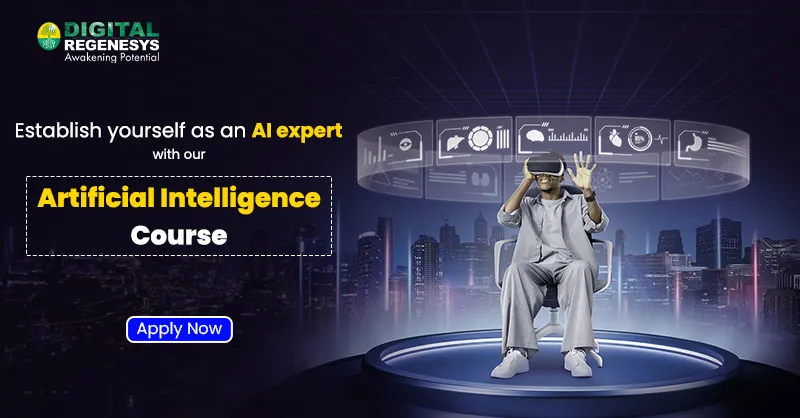AI in Retail – Applications and Benefits

Ever wondered why some online stores seem to know exactly what you want before you even search? That’s the power of artificial intelligence (AI) quietly transforming the retail landscape.
It’s not just about recommendations; AI is reshaping operations, marketing, supply chains, and in-store experiences.
In 2025, the global AI in retail market is projected to reach USD 14.24 billion, growing at a compound annual growth rate (CAGR) of 46.5%. This rapid growth highlights AI’s crucial role in helping retailers better understand customers and operate more efficiently.
From hyper-personalised online experiences to optimised supply chains and smarter physical stores, AI is transforming every facet of retail.
In this article, we explore how AI is revolutionising retail, enhancing customer experiences, and improving operational efficiency across the industry.
Personalising the Customer Experience
AI is driving a new era of personalised retail. Online platforms track browsing behaviour, purchase history, and engagement patterns to recommend products customers are likely to love. Dynamic pricing models tailor offers based on demand, while chatbots provide instant support, answering questions and guiding purchases.
Personalised marketing campaigns reach the right audience at the right time. These tools increase engagement, encourage loyalty, and make every shopping interaction feel uniquely tailored. Retailers using AI can deliver memorable experiences that foster repeat business and customer satisfaction.
These AI tools are helping retailers create highly tailored experiences for every customer.
Key Applications:
- Product recommendations based on user behaviour.
- AI-driven pricing strategies.
- Personalised marketing campaigns.
- Chatbots for instant customer support.
- Dynamic promotions and offers.
Know more about – What is TensorFlow?

Optimising Inventory and Supply Chains
Inventory management and supply chains are complex, but AI simplifies the process. Predictive analytics anticipate demand fluctuations, helping retailers avoid overstocking or stockouts. Smart warehouse systems automate storage, retrieval, and packaging. Logistics platforms use AI to optimise delivery routes and schedules, reducing time and costs.
Real-time inventory tracking ensures products are available where and when needed. With AI, retailers can improve efficiency, reduce operational expenses, and provide customers with faster, more reliable service, strengthening both profitability and satisfaction.
AI ensures products are available when and where customers need them, reducing waste and costs.
Key Applications:
- Predictive demand analytics.
- Smart warehouse management.
- Optimised delivery and logistics.
- Real-time inventory tracking.
- Reduction of stockouts and overstock.
Enhancing In-Store Operations
AI isn’t just for online retail; it’s transforming physical stores too. Smart shelves with sensors monitor stock levels and alert staff when restocking is needed. Cashierless checkouts using computer vision allow faster transactions. Foot traffic analytics and heatmaps guide store layout optimisation, enhancing shopping experiences.
AI can also analyse in-store customer behaviour to offer personalised promotions in real time. These innovations streamline operations, reduce wait times, and help retailers create a seamless, convenient, and engaging shopping experience for every visitor.
These innovations help retailers improve efficiency and deliver a seamless in-store experience.
Key Applications:
- AI-powered checkout and payment systems.
- Smart shelves and inventory sensors.
- Foot traffic and heatmap analytics.
- Customer behaviour monitoring for store layout optimisation.
- Automated assistance and personalised in-store offers.
Check out – AI in Healthcare

AI-Driven Marketing and Sales Strategies
AI is revolutionising retail marketing and sales. Algorithms segment customers to deliver highly targeted campaigns. Predictive analytics forecasts sales trends and product demand, allowing for more accurate planning. Automated tools generate marketing content and optimise timing for promotions, ensuring maximum impact.
Dynamic pricing adjusts offers in real time to increase revenue. By leveraging AI, retailers make data-driven decisions that enhance customer engagement, boost conversion rates, and increase loyalty, creating smarter, more effective marketing strategies.
AI is enabling retailers to make smarter marketing and sales decisions based on real data insights.
Key Applications:
- Customer segmentation for targeted campaigns.
- Predictive sales analytics.
- Automated marketing content generation.
- Trend detection and demand prediction.
- Optimised pricing and promotions.
AI-Powered Analytics and Insights in Retail
AI is revolutionising how retailers collect, analyse, and act on data. From customer behaviour and sales trends to inventory movement and market dynamics, AI tools process vast amounts of information quickly and accurately. Retailers can identify emerging trends, optimise pricing, forecast demand, and tailor marketing strategies in real time.
By turning data into actionable insights, AI enables businesses to make informed decisions that improve efficiency, enhance customer satisfaction, and increase profitability. Retailers adopting AI analytics gain a competitive edge in a fast-moving market.
AI-powered analytics provide retailers with the insights they need to make smarter, data-driven decisions.
Key Applications:
- Real-time sales and customer behaviour tracking.
- Demand forecasting and trend analysis.
- Optimisation of pricing and promotions.
- Personalised marketing strategies.
- Operational efficiency improvements through predictive insights.
Get insights on – Can You Learn Artificial Intelligence Without Coding?

AI Across Retail Channels
AI is transforming retail across all channels. E-commerce platforms rely on recommendation engines and chatbots to engage shoppers, while mobile apps use AI assistants and predictive search for personalised experiences.
Physical stores use smart shelves, automated checkout, and real-time analytics to improve efficiency and customer satisfaction. Omnichannel retailers synchronise inventory and personalise experiences across platforms, creating seamless interactions for consumers whether they shop online or offline.
Here’s how AI is shaping retail across various channels:
|
Retail Channel |
AI Applications |
Impact / Benefits |
|
E-commerce |
Recommendation engines, chatbots |
Personalised shopping, improved conversions |
|
Mobile Apps |
Predictive search, AI assistants |
Enhanced engagement, faster support |
|
Brick-and-Mortar |
Smart shelves, checkout automation |
Improved efficiency, better customer experience |
|
Omnichannel |
Inventory sync, customer insights |
Seamless experience across platforms |

Conclusion
AI has become a strategic advantage for retailers, enhancing customer experiences, optimising operations, and driving sales.
From personalised online shopping and predictive inventory management to smarter in-store experiences and marketing strategies, AI enables retailers to operate more efficiently and connect with customers more meaningfully.
For professionals seeking to master AI applications in retail, Digital Regenesys offers an Artificial Intelligence Certificate Course. This program equips learners with practical skills to apply AI across retail and other industries, preparing them for the future of technology-driven commerce.
Visit Digital Regenesys to gain practical AI skills and stay ahead in the retail technology revolution.
Last Updated: 18 November 2025
